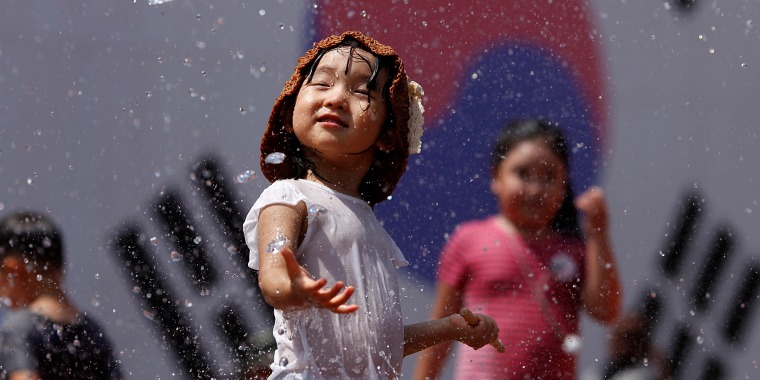Koreans might not be sure how many candles to put on their next birthday cake if the incoming president's plan goes into effect.
Earlier this week, South Korea President-elect Yoon Suk-yeol's team spoke out about plans to remove the country's "Korean age" system, Yonhap News Agency reported.
In the U.S. and many countries around the world, people turn one year older on their birthday and aren't considered to be 1 year old until a whole year has passed since their birth. In South Korea, however, there are three different systems in use to determine someone's age, so depending on which system is being used, you could be one of three different ages.
- Korean age system: People are considered 1 year old at birth (since they have technically been developing for nine months of pregnancy), and their age gains another year every New Year's Day. For instance, if you were born in December 2020, you'd be a 3-year-old right now.
- International birthday system: You turn a year older on the date of your birth every year. Anyone born in December 2020 would be a 1-year-old now (or technically, 16 months old).
- New Year birthday system: You are considered 0 years old when you’re born and add a year to your age on New Year's Day. So a baby born in December 2020 would be a 2-year-old now since they've been alive for two New Year's Day celebrations.
It's kind of confusing, right? But multiple aging systems are a cultural tradition historically practiced in many East Asian countries, including China, Japan and Vietnam, according to Heejeong Sohn, Ph.D., director of the Korean Studies Program at Stony Brook University.
While other countries have stopped using multiple aging systems and adopted the international aging system over the years, Korea has continued to use its traditional age system and the others, Sohn told TODAY.
Officials say the multiple aging systems create legal confusion
With so many competing systems in place, it’s not surprising that the incoming president wants to simplify things. But there’s also some legal motivation behind the change.
In a recent press briefing, Rep. Lee Yong-ho, a member of the transition team, explained that the plan is to get rid of the three separate systems and use only the international birthday system.
“Due to the different calculations of legal and social age, we have experienced unnecessary social and economic costs from persistent confusion and disputes over calculating age when receiving social, welfare and other administrative services or signing or interpreting various contracts,” he said.
During his campaign, Yoon spoke about his plans for a unified age system. The hope is to put the plan into action this year, get it passed before the end of 2023 and have the change implemented in phases.
What cultural effects could the change have?
While explaining the various age systems, Sohn told TODAY that Korea has already been mostly using the international system in legal matters.
“The traditional (Korean age) system didn’t really intervene much. It might’ve caused some confusion when people asked how old you are in social conversations; however, I don’t think it was a major confusion,” the historian said.
Sohn said she imagines that the Korean government is keen on "maximizing efficiency" and officially getting rid of the multiple aging systems on paper so there's no room for confusion legally.
Culturally, however, the Korean age and New Year age systems have created a sense of “communal celebration,” Sohn said. That's because everyone has traditionally turned one year older together on New Year's Day.
In Korea, the idea of "friendship" is also rooted in age.
"The term 'friends' means you're in the same age group. (You) become one big communal group," Sohn explained. "Even if you’re born two months apart, you’re the same age. The proposed change is probably going to disintegrate the sense of 'friendship' in the cultural sense."
However, Sohn believes that over time, younger generations will embrace the standardized international aging system and that it might create a renewed sense of time and community in its own way.
